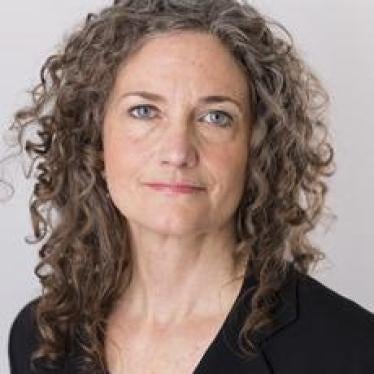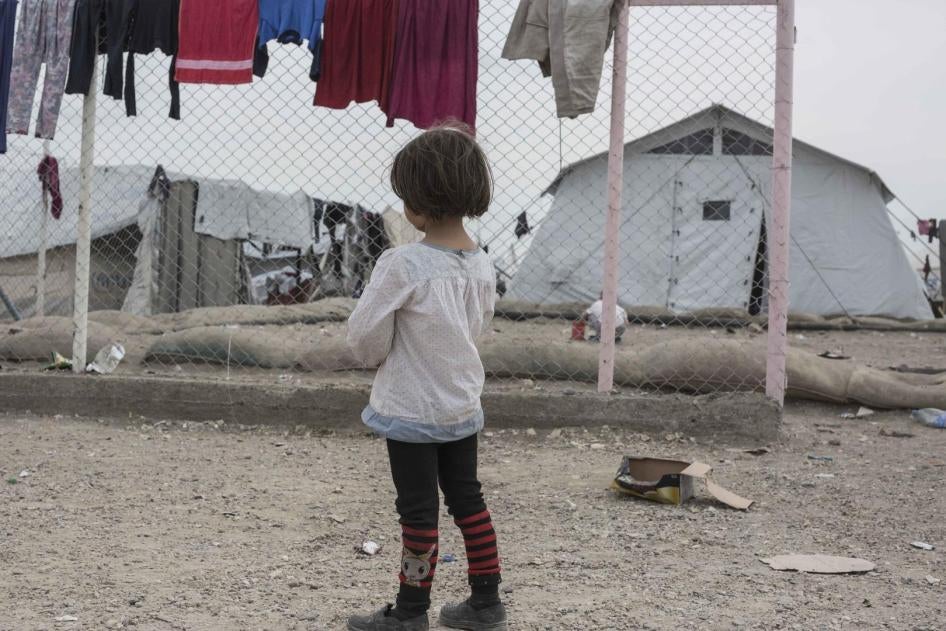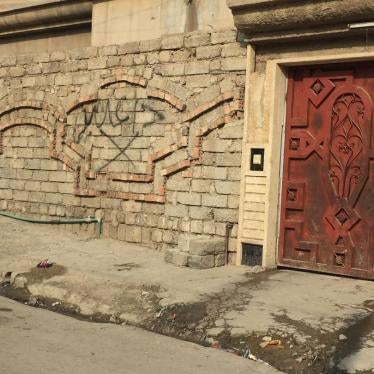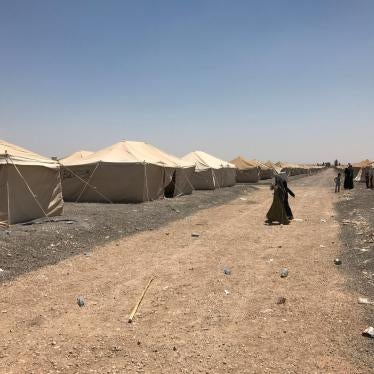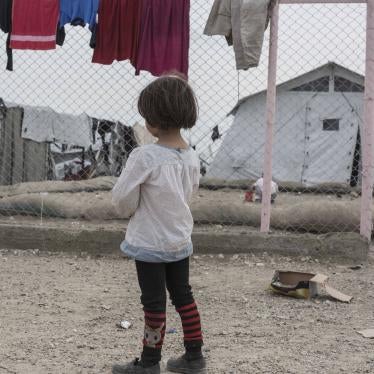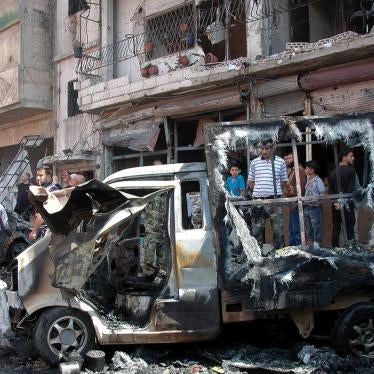“They won’t shoot us, my darling. Mummy is right here with you, don’t worry.”
The German mother’s words, spoken in almost a whisper, did not stop her young son’s whimpers.
Desperate text and voice messages have been furtively emerging from al-Hol, a desolate camp holding about 70,000 women and children related to Islamic State suspects in northeastern Syria, a de facto autonomous region controlled by a Kurdish-led coalition until Turkey invaded from the north on October 9.
The women locked up without charge in the open-air camp spoke of armed, masked guards from the Kurdish-led Syrian Democratic Forces (SDF) — who, as of Monday, still controlled al-Hol — snatching sons over age 12 from their tents during the night. They wrote that the medical clinic inside an annex that holds 11,000 foreigners from four dozen countries has been shut for days — a fact confirmed by aid workers. They described overflowing latrines and dwindling food and water supplies. They begged to be brought home even if prison awaited them, writing that they were terrified of being transferred to Syrian prisons, notorious for mass deaths and torture, under a deal announced Sunday in which Kurdish authorities agreed to let the forces of Syrian President Bashar al-Assad advance into northeastern Syria to stave off the Turkish assault.
But none of the texts or voice messages I have received conveyed the women’s despair as palpably as the exchange between the mother and son. The woman’s voice and the boy’s cries sounded muffled and frozen with fear, as though the fighting would sweep into the desert camp at any moment, like the dust storms that leave babies in al-Hol coated in grimy sand.
For months, Human Rights Watch and a host of other human rights defenders, including the United Nations human rights commissioner and the UN special rapporteur on countering terrorism, have issued largely unheeded appeals for governments to bring home their nationals detained in al-Hol and in two smaller camps in northeastern Syria used to house family members of ISIS suspects.
More than two-thirds of detainees in the camps are young children who never chose to be dragged to or born in the so-called caliphate. Between December 2018 and September, nearly 340 children died in al-Hol — most from preventable diseases such as severe diarrhea or malnutrition, according to the International Rescue Committee.
I have been unable to reach the camps since Turkey’s military offensive began and cannot verify all the women’s latest stories. But during three visits to al-Hol in late June, conditions were dire. Almost every child I saw was bone thin with a swollen belly, a deep cough and a shell-shocked gaze. Many dragged jugs of water larger than their own slight frames under a blistering sun. A boy and a girl struggled up gravelly paths on crutches, each with a leg amputated above the knee. Infants lay listless on the floors of tattered tents, flies on their faces.
One sunburned boy with a shock of blond hair, who looked about 5, stood alone by a mound of stinking garbage, clad in a soiled yellow shirt with the words, “Who Am I?” The answer is clear: these children are victims, not only of ISIS but of their current conditions of captivity.
The embattled Kurdish-led Autonomous Administration of North and East Syria that, until Turkey’s incursion, governed the region, has repeatedly called on all other countries with nationals inside the camps to repatriate them. In many countries, grandparents and other family members are begging their governments to let them take in and care for women and children stuck in the camps.
But most governments, including those of Western Europe, argue that most of these nationals are not their responsibility unless they can, by some miracle, leave their locked camps and cross conflict zones and borders to reach consulates often hundreds of kilometers away. These governments also balk at taking responsibility for their nationals who are ISIS suspects, including boys as young as 12, whom the SDF is holding in inhumanely overcrowded, makeshift prisons. These governments insist that security concerns and logistical difficulties preclude swift returns except, occasionally, of a few orphans.
Perversely, the refusal of Western governments to take responsibility for their nationals may result in ISIS criminals and camp members breaking free, as the SDF diverts its forces to fighting the Turkish military. Already in recent days, several Syrian ISIS suspects reportedly escaped an SDF-controlled prison and hundreds of women and children escaped Ain Issa, another camp for family members of ISIS suspects, after both were struck by Turkish artillery.
A few foreign governments, including those of Kazakhstan and Kosovo, have taken back citizens held in northeastern Syria, and in some cases, male prisoners by the planeload, demonstrating that where there is political will to bring citizens home for rehabilitation and reintegration, there is a way. The Kurdish-led coalition has also worked with local authorities in Syria to return many Syrian women and children, who make up about half of the camp’s detainees, as well as Syrian men and boys they have imprisoned separately or prosecuted, to their communities.
Once back home, former detainees can be investigated and, if appropriate, monitored or prosecuted in line with international fair-trial standards. Children should only be prosecuted in exceptional circumstances, as a last resort.
Helping these women and children come home advances two basic legal obligations: ensuring everyone’s right to return to their home country, without their home state throwing up direct or indirect barriers, and ensuring justice for serious crimes committed by ISIS through fair trials for those most responsible.
As the battle rages in northeastern Syria, the need is greater than ever for countries to respond to the plight of their citizens trapped in camps and detention centers, including young children too scared to cry instead of whimper.
